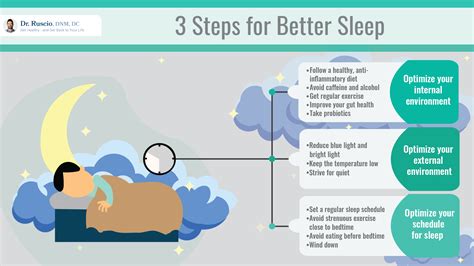Practical steps for better sleep hygiene to boost daytime alertness?

In our fast-paced world, achieving optimal daytime alertness often feels like an elusive goal. Yet, the secret to sustained energy and focus isn’t a magical supplement or endless coffee; it’s rooted in a fundamental aspect of health: sleep hygiene. Sleep hygiene refers to the practices and habits necessary to have good nighttime sleep quality and full daytime alertness. By adopting a few practical steps, you can significantly improve your sleep, leading to a more vibrant and productive day.
Understanding Sleep Hygiene’s Impact
Good sleep hygiene goes beyond merely getting enough hours. It’s about establishing a routine and environment that primes your body and mind for restful sleep. When your sleep is consistently disrupted or of poor quality, it directly impacts cognitive function, mood, and physical energy during waking hours. Conversely, robust sleep allows your brain to consolidate memories, repair tissues, and regulate hormones, all contributing to peak daytime performance.

Establish a Consistent Sleep Schedule
One of the most powerful steps you can take is to go to bed and wake up at roughly the same time every day, including weekends. This consistency helps regulate your body’s natural sleep-wake cycle, also known as your circadian rhythm. When your rhythm is stable, it becomes easier to fall asleep at night and wake up feeling refreshed without an alarm. Aim for 7-9 hours of sleep per night, tailoring the duration to what makes you feel best.
Create a Conducive Sleep Environment
Your bedroom should be a sanctuary for sleep. Make sure it’s dark, quiet, and cool. Blackout curtains can block unwanted light, and earplugs or a white noise machine can mask disruptive sounds. The ideal temperature for sleep is typically between 60-67 degrees Fahrenheit (15-19 degrees Celsius). Invest in a comfortable mattress and pillows that support your body properly, as an uncomfortable bed can significantly impede sleep quality.

Optimize Your Evening Wind-Down Routine
Give your brain and body time to transition from the day’s activities to sleep. About an hour before bed, start a relaxing routine: read a book, take a warm bath, listen to calming music, or practice gentle stretching or meditation. Crucially, avoid screens (phones, tablets, computers, TV) during this hour, as the blue light emitted can interfere with melatonin production, the hormone that signals sleep. Also, steer clear of heavy meals, excessive liquids, caffeine, and alcohol close to bedtime.

Leverage Daytime Habits for Better Nighttime Sleep
What you do during the day significantly impacts your night. Regular physical activity can deepen sleep, but try to finish intense workouts several hours before bedtime. Exposure to natural daylight, especially in the morning, helps set your circadian rhythm. If you need to nap, keep it short (20-30 minutes) and early in the afternoon to avoid disrupting nighttime sleep. Long or late naps can make it harder to fall asleep when it counts.

Mind Your Diet and Beverages
What you consume throughout the day and evening plays a vital role in your sleep quality. Caffeine, a stimulant, should be avoided in the late afternoon and evening, as its effects can linger for hours. Alcohol might initially make you feel sleepy, but it fragments sleep later in the night, reducing its restorative quality. Heavy, spicy, or fatty meals close to bedtime can cause indigestion and discomfort, making it difficult to fall asleep. Opt for lighter, easily digestible foods if you must eat before bed, and ensure you stay hydrated throughout the day, but reduce fluid intake closer to bedtime to minimize nighttime bathroom trips.

Conclusion
Achieving better sleep hygiene is an investment in your overall well-being and a direct pathway to enhanced daytime alertness. By consistently applying these practical steps—maintaining a regular sleep schedule, optimizing your sleep environment, adopting a relaxing evening routine, leveraging beneficial daytime habits, and making mindful dietary choices—you can transform your nights and, consequently, your days. Start small, be patient, and prioritize your sleep; the benefits to your energy, mood, and productivity will be profound.









